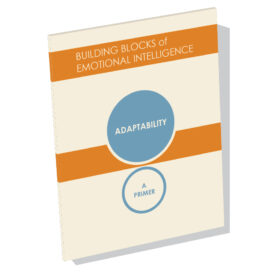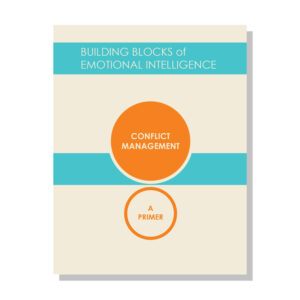

Adaptability: Where Mindfulness Training Impacts Leadership
March 30, 2017 Time to read: 3 min.In my previous article, I mentioned a senior leader with a global accounting firm who credited mindfulness for helping improve her capacity for emotional self-control.
During our discussion, she also explained in detail how this change contributed to greater adaptability. These are both competencies of Emotional and Social Intelligence, and mindfulness training can help with their development.
In this case, emotional self-control increased the capacity for managing unexpected events, which relied in part on an enhanced awareness of how her personal bias, interpretations of past experiences, and subconscious reactions were interfering with the effectiveness of her responses.
The other 41 leaders I interviewed as part of my study also linked mindfulness to the development of the Emotional and Social Intelligence Competency of Adaptability. Adaptability falls under the domain of Emotional Self-Management and is exemplified by a leader being able to work effectively in rapidly changing environments and with diverse groups or individuals. I found additional evidence of this competency during my transcript analysis using the Emotional and Social Competency Indicator (ESCI) model developed by Daniel Goleman and Richard Boyatzis. Adaptability has been empirically linked to increased leadership performance and is typically present in leaders who can manage shifting priorities and are capable of adjusting their perceptions and beliefs.
Why Adaptability is important to leadership
In addition to being emphasized by a number of Emotional Intelligence researchers, Adaptability is linked to a variety of key leadership abilities including:
- Improved ability to lead in challenging environments.
- More effective and rapid responses to unexpected changes.
- Effectiveness in multiple roles, functions, and/or different organizations.
Here’s an example of what this looks like. A senior video game producer shared with me how mindfulness contributed to her ability to successfully adapt to disruptive experiences during her career, “…there’s a calmness about it that allows for new innovation…You can still achieve the goal… you just have to be able to change your plans and your actions.”
During our conversation, she shared examples including needing to meet a major deadline following a significant reduction in budget, and managing employee disengagement and attrition following a merger. In these and other examples, she explained how adaptability increased her ability to successfully navigate unpleasant workplace events and interact more effectively with disruptive coworkers. She added that truly being adaptable required her to stay focused on key objectives in the face of unpredictable and sometimes highly volatile situations.
She also echoed what other leaders shared about adaptability; that it is a vital component of both planned and improvisational leadership behaviors.
For example, another participant noted the importance of being adaptable when she developed a plan to address a gap in employee development after assuming a C-level position, “…there was no talent program in place…so I worked with my counterpart in HR and we put something together that the team responded very favorably to.” Adaptability in the form of improvisational leadership behaviors was also described frequently. One leader shared how adaptability played a key role in resolving a significant crisis that threatened project success at a critical moment; “we had a run-in and she had a breakdown…I was able to work through that….and get her back on track…we ended up getting great results.”
Similarly, adaptability can be important in letting go of past accomplishments in order to address the challenges that come with new roles, or shifts in leadership identity.
How Developing Mindfulness can lead to increased Adaptability
Neuroimaging research, like what is summarized in the 2014 HBR article Mindfulness Can Literally Change Your Brain, indicates that mindfulness alters regions of the brain and changes the manner in which neural networks connect with each other. These types of changes may also improve cognitive flexibility, which contributes to improved adaptability.
Similar to the process of athletic training, neuroplasticity is what accounts for the circuitry of our brains being shaped by our experience. In this context developing leadership behaviors such as adaptability is like mental conditioning. It is a conscious approach that allows us to:
- Identify areas where we need improvement and implement a daily plan of action to address gaps.
- Regularly assess the alignment of our beliefs and actions.
- Deliberately refine our ability to identify and develop the best strategies for effectively engaging with different types of individuals in the workplace. As one participant described it, “…I need to flex my style just to be able to adapt to different characters.”
In addition to cultivating adaptability, mindfulness is also linked to the development of Emotional Self-Awareness and Emotional Self-Management. Adaptability is enhanced by these two competencies, since greater emotional awareness enables you to more effectively manage your reactions to situational demands.
In my next article I will discuss the relationship between mindful leadership and the fourth competency in the Emotional Self-Management domain, Achievement Orientation.
Recommended Reading:
 Our new series of primers was created by bestselling author of Emotional Intelligence Daniel Goleman, along with fellow thought leaders in EI, research, and leadership development.
Our new series of primers was created by bestselling author of Emotional Intelligence Daniel Goleman, along with fellow thought leaders in EI, research, and leadership development.
The primers focus on the competencies of Emotional and Social Intelligence in leadership. You can find the first 3 in the series available now: Emotional Self-Awareness, Emotional Self-Control, and Adaptability.







